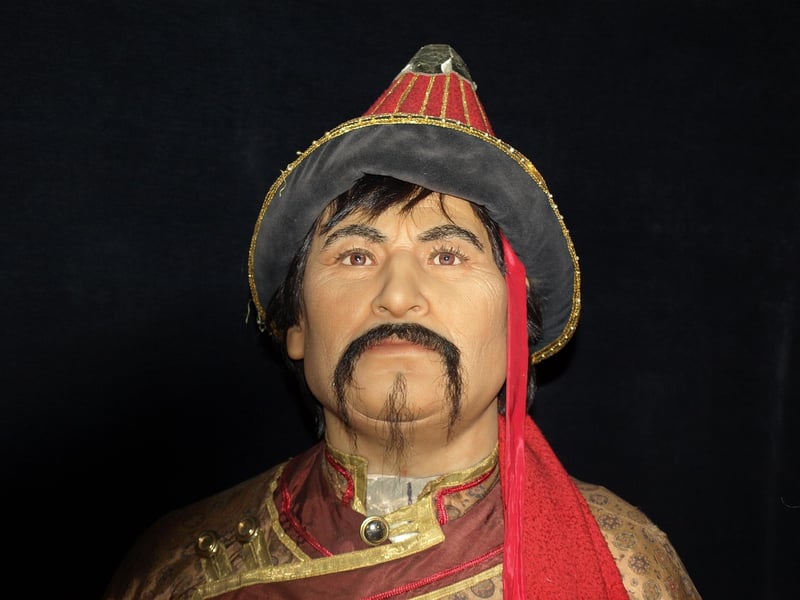Genghis Khan
Exploring the Life and Legacy of Genghis Khan

Genghis Khan, born Temüjin, was the founder and first Great Khan of the Mongol Empire, which became the largest contiguous empire in history after his demise. His military campaigns, unparalleled leadership, and innovative tactics left a lasting impact on world history.
Early Life and Rise to Power
Temüjin was born in 1162 near the Onon River in Mongolia. After enduring a turbulent childhood marked by the murder of his father, he united the Mongol tribes through alliances and conquests, eventually becoming Genghis Khan in 1206.
Conquests and Empire Building
Genghis Khan led his armies to conquer vast regions, including China, Central Asia, the Middle East, and Eastern Europe. His military strategies, such as the use of cavalry and psychological warfare, were revolutionary and contributed to his success.
Legacy and Influence
Despite his brutal reputation, Genghis Khan implemented administrative reforms, promoted religious tolerance, and fostered trade along the Silk Road. His empire facilitated cultural exchange and paved the way for the establishment of the Pax Mongolica.
Modern Perspectives
Genghis Khan's legacy remains a subject of debate among historians and scholars. While some view him as a ruthless conqueror, others recognize his contributions to world history and his role in shaping Eurasian geopolitics.
Conclusion
Genghis Khan's life story is a testament to the power of resilience, leadership, and ambition. His impact on world history continues to be studied and admired, making him one of the most influential figures of all time.
Explore more about Genghis Khan's life and legacy here.
